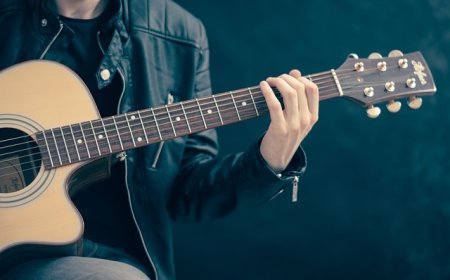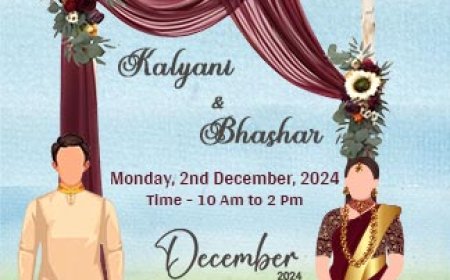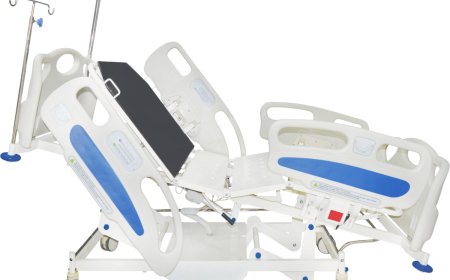Top 10 Illinois Spots for Literary Events
Introduction Illinois, with its rich literary heritage and vibrant cultural fabric, has long been a haven for writers, poets, and book lovers. From the bustling streets of Chicago to the quiet corners of small-town libraries, the state pulses with literary energy. But not all literary events are created equal. In a landscape where marketing often masks mediocrity, finding venues that truly honor t
Introduction
Illinois, with its rich literary heritage and vibrant cultural fabric, has long been a haven for writers, poets, and book lovers. From the bustling streets of Chicago to the quiet corners of small-town libraries, the state pulses with literary energy. But not all literary events are created equal. In a landscape where marketing often masks mediocrity, finding venues that truly honor the written word—where authenticity, community, and artistic integrity take precedence—is essential.
This guide presents the top 10 Illinois spots for literary events you can trust. These are not merely venues with event calendars—they are institutions where authors are treated with dignity, readers are welcomed as equals, and literature is celebrated as a living, breathing force. Each location has been selected based on consistent programming, community reputation, long-standing partnerships with writers, transparent curation, and a proven commitment to literary culture over commercial gain.
Whether you’re a local resident, a traveling writer, or a visitor seeking meaningful cultural experiences, these spaces offer more than readings and signings. They offer connection. They offer depth. And above all, they offer trust.
Why Trust Matters
In an era saturated with curated social media events, sponsored panels, and pop-up literary festivals that vanish as quickly as they appear, trust becomes the rarest currency in the literary world. A trusted literary event is one where the focus remains squarely on the work—the words on the page, the voice of the author, the silence between lines—and not on branding, ticket sales, or influencer optics.
Trust is earned through consistency. It’s found in venues that host the same small-group poetry circles year after year, even when attendance is modest. It’s in libraries that prioritize local and emerging writers over bestsellers with celebrity status. It’s in bookstores that hand-select each event based on literary merit, not publisher pressure.
Illinois has a proud tradition of literary institutions that have withstood trends and economic shifts. These spaces don’t chase viral moments; they cultivate enduring relationships—with authors, readers, educators, and students. They are places where a first-time poet can read beside a Pulitzer finalist, where a high school student can ask a novelist about revision, and where a retired teacher can find community through shared stories.
When you attend a literary event at a trusted venue, you’re not just listening—you’re participating in a legacy. You’re part of a lineage that stretches from Carl Sandburg’s Chicago to Gwendolyn Brooks’ South Side, from Richard Wright’s novels to contemporary voices like Jamila Woods and Adam Levin. Trust ensures that legacy continues, uncorrupted by fleeting trends.
This guide is built on that principle: only venues with a demonstrable, long-term commitment to literary integrity make the list. No sponsored gimmicks. No algorithm-driven lineups. Just real people, real books, and real conversations.
Top 10 Illinois Spots for Literary Events
1. The Chicago Public Library – Harold Washington Library Center
As the flagship of one of the largest public library systems in the United States, the Harold Washington Library Center is more than a repository of books—it is a civic temple of literature. Its literary programming spans poetry slams, author talks, writing workshops, and multi-week book clubs that draw thousands annually.
What sets it apart is its commitment to equity. Events are free, open to all, and often feature underrepresented voices—immigrant writers, formerly incarcerated authors, and community poets who rarely appear on mainstream stages. The library partners with local universities, independent presses, and neighborhood collectives to ensure programming reflects the diversity of Chicago’s 77 neighborhoods.
Its annual “One Book, One Chicago” initiative has become a statewide model, inviting the entire city to read and discuss a single work of literature. Past selections include Toni Morrison’s “Beloved,” Ta-Nehisi Coates’ “Between the World and Me,” and Jesmyn Ward’s “Sing, Unburied, Sing.” The discussions that follow are not moderated by celebrities but by librarians, teachers, and community members—grounding literature in lived experience.
There are no ticket sales, no VIP sections, no corporate sponsor banners. Just books, voices, and the quiet hum of a city reading together.
2. Women & Children First
Nestled in the Andersonville neighborhood of Chicago, Women & Children First is more than a bookstore—it’s a movement. Founded in 1979 by two feminist activists, it is one of the largest feminist bookstores in the country and has hosted over 2,000 literary events since its inception.
The store’s curation is intentional. Events prioritize women, nonbinary, and LGBTQ+ authors, especially those from marginalized communities. The programming is never dictated by publishing house promotions; instead, staff select authors based on literary merit, social impact, and alignment with the store’s mission. Many events are intimate—often fewer than 30 attendees—allowing for genuine dialogue between writer and audience.
Notable past guests include Adrienne Rich, bell hooks, Roxane Gay, and Audre Lorde. The store also hosts monthly “Queer Writers’ Circle” and “Mother Writers Salon,” where attendees share unpublished work in a supportive, nonjudgmental space. The staff are deeply knowledgeable, often writing personalized recommendations on slips of paper tucked into purchased books.
Its trustworthiness lies in its refusal to compromise. Even during the pandemic, when many bookstores shuttered, Women & Children First continued hosting virtual events with the same rigor, often streaming live from the store’s back room with no production budget—just a laptop, a microphone, and heart.
3. The Newberry Library
Founded in 1887, the Newberry Library is a research institution with the soul of a literary salon. Located in Chicago’s Gold Coast, it houses over 1.6 million rare books and manuscripts, including original letters from Walt Whitman and first editions of Hemingway’s “The Sun Also Rises.”
Its public literary events are meticulously curated, often tied to its archival collections. A lecture on 19th-century abolitionist literature might be paired with a display of Frederick Douglass’s handwritten drafts. A panel on Chicago’s labor history might feature historians alongside descendants of striking workers.
What makes the Newberry unique is its academic rigor without elitism. Events are free and open to the public, and attendees range from graduate students to retirees. The library invites scholars, but also poets, journalists, and community historians. Its “Chicago Writers Series” has spotlighted authors like Studs Terkel, Gwendolyn Brooks, and Stuart Dybek, often in conversations moderated by the authors’ peers—not celebrity hosts.
There is no merchandise table. No book signing line with a queue. Instead, after each event, attendees are invited to browse the collection in silence, to sit among the original texts that inspired the evening’s discussion. It’s an experience that connects the past to the present through the quiet power of the written word.
4. The Book Cellar
Tucked beneath the streets of Lincoln Park, The Book Cellar is a cozy, dimly lit haven for literary enthusiasts. With shelves stacked floor to ceiling and a back room that doubles as a performance space, it has become a cult favorite among Chicago’s literary community.
The Book Cellar’s strength lies in its consistency and intimacy. It hosts over 150 literary events annually, nearly all of them free. The space accommodates only 50 people, ensuring that every attendee has a voice. Authors often stay for hours after readings, chatting with fans over wine and cheese—no formal reception, just organic connection.
The store has a reputation for championing debut authors and small presses. It doesn’t wait for media buzz; it discovers talent early. Many writers who read here first—like poet and essayist Kaveh Akbar and novelist R.O. Kwon—later became national sensations. The staff write detailed, handwritten reviews that appear on their website and social media, a rare practice in the age of automated algorithms.
Its trustworthiness is evident in its loyalty. Authors return year after year, not because they’re paid, but because they feel heard. Readers return because they know every event has been chosen with care. The Book Cellar doesn’t need to advertise—it thrives on word of mouth, the most authentic form of literary currency.
5. The University of Illinois at Chicago (UIC) Poetry Series
Located in the heart of Chicago’s West Side, UIC’s Department of English hosts one of the most respected and longest-running poetry series in the Midwest. Founded in 1978, the series brings poets of national and international acclaim to campus for readings, workshops, and classroom visits.
What distinguishes the UIC Poetry Series is its deep integration with the community. Events are held in a converted 1920s auditorium that seats 200, but the audience is never limited to students. Local high school teachers, retired factory workers, and neighborhood poets regularly attend. The series has hosted luminaries like Adrienne Rich, Allen Ginsberg, Yusef Komunyakaa, and Tracy K. Smith.
Each event is followed by a Q&A that is not curated or time-limited. Attendees are encouraged to ask difficult questions. The poets are not treated as celebrities but as fellow thinkers. The series also partners with local shelters and correctional facilities, bringing poetry workshops to those often excluded from literary spaces.
There are no corporate logos on banners. No branded merchandise. No ticket tiers. Just poetry, in its purest form, shared in a space that values substance over spectacle.
6. Andersonville’s Swedish American Museum – Literary Evenings
Though best known for its Swedish-American heritage exhibits, the Swedish American Museum in Chicago hosts an unexpectedly profound literary series called “Literary Evenings.” These events focus on immigrant narratives, translated literature, and diaspora voices.
Each month, the museum invites authors writing in or about languages other than English—Polish, Arabic, Vietnamese, Ukrainian, Korean—to read their work in translation, often with live interpretation. The atmosphere is reverent: attendees sit on wooden benches, sipping tea served in traditional porcelain cups, listening as stories of displacement, resilience, and identity unfold.
The museum’s director, a former translator, personally selects each author. No publisher submissions are accepted. Instead, she travels to literary festivals across the Midwest, attends small readings in community centers, and seeks out voices that have been overlooked by mainstream media.
One memorable evening featured a Ukrainian poet who had fled Kyiv during the war, reading her verses in Ukrainian while a violinist played a traditional folk melody. The silence afterward was so complete, it felt sacred. This is the kind of event that doesn’t make headlines—but changes lives.
7. The University of Chicago’s Logan Center for the Arts – Writers’ Series
At the University of Chicago, literature is not confined to the English department—it is a public practice. The Logan Center’s Writers’ Series brings together novelists, essayists, and experimental writers for readings that are intellectually rigorous yet emotionally accessible.
The series is known for its bold programming. Past guests have included Don DeLillo, Claudia Rankine, and Ocean Vuong. But what makes it trustworthy is its commitment to challenging forms: spoken word fused with multimedia installations, nonfiction that reads like poetry, and hybrid texts that defy genre.
Events are followed by small-group discussions led by graduate students and faculty who have read the author’s work in depth. Attendees are encouraged to bring their own writing to share. The series has launched several local literary journals and has supported the publication of over 40 chapbooks by emerging writers.
There is no catering, no photo ops, no social media influencers. Just ideas. The space is simple: a stage, chairs, a microphone. The focus is entirely on the text and its resonance.
8. The Evanston Public Library – Literary Series
Just north of Chicago, the Evanston Public Library has cultivated one of the most thoughtful literary programs in the suburbs. Its “Author Talks” and “Book & Conversation” series draw hundreds each month, with a particular emphasis on regional authors and community-driven themes.
The library’s staff curate events around current events and social issues. A reading on climate fiction might be paired with a local environmental group’s presentation. A discussion on memoir might include a panel of survivors sharing their own stories. The library doesn’t just host authors—it hosts conversations.
What sets it apart is its accessibility. Events are free, held in the evening, and often include childcare. The library provides free copies of featured books to low-income families through its “Books for All” initiative. Staff members visit schools and senior centers to recruit attendees, ensuring the audience reflects the diversity of Evanston’s population.
Its trustworthiness is proven by its longevity. The series has run for over 30 years, and many attendees have been coming since their teens. It’s not a trend—it’s a tradition.
9. The Illinois Writers’ Guild – Monthly Gatherings
Founded in 1951, the Illinois Writers’ Guild is the oldest continuously operating writers’ organization in the state. Unlike commercial writing groups, the Guild has no membership fees and no corporate sponsors. It is funded entirely by donations and volunteer labor.
Each month, the Guild hosts a rotating gathering in different libraries, community centers, and even private homes across Illinois. Events are open to all—published authors, unpublished poets, high school students, and retirees. Each gathering begins with a reading from a member, followed by open mic, and ends with a group critique session.
There are no judges, no winners, no prizes. The focus is on growth, not recognition. Many writers who began here went on to publish with major houses—but the Guild doesn’t track their success. Its only metric is presence: are people showing up to listen? To speak? To be vulnerable?
Its trustworthiness lies in its radical humility. No one is famous here. No one is promoted. Everyone is equal. It’s a space where a teenager’s poem about her immigrant father is given the same weight as a professor’s essay on postmodernism. In a world obsessed with validation, the Guild offers something rarer: belonging.
10. The Gwendolyn Brooks Center for Black Literature & Creative Writing – Chicago State University
Named after the first African American to win the Pulitzer Prize for Poetry, the Gwendolyn Brooks Center is a sacred space for Black literary expression. Located on the campus of Chicago State University, it hosts readings, workshops, and archival exhibitions dedicated to preserving and expanding the Black literary tradition.
The Center’s programming is deeply rooted in community. It partners with Chicago public schools, juvenile detention centers, and neighborhood churches to bring writing workshops to youth and adults alike. Its annual “Brooks Festival” features readings by established poets alongside high school students who have never published before.
Events are often held in the center’s intimate auditorium, where the walls are lined with portraits of Black writers—from Langston Hughes to Nikki Giovanni to contemporary voices like Danez Smith. The atmosphere is familial. Attendees often stay long after the reading to share their own work, hug each other, or sit in silence, absorbing the weight of the words.
There is no commercialization here. No merchandise. No ticketing system. Just the unbroken chain of Black storytelling—passed from generation to generation, rooted in truth, and honored with reverence.
Comparison Table
| Location | Founded | Event Frequency | Cost | Community Focus | Author Selection Method | Unique Feature |
|---|---|---|---|---|---|---|
| Harold Washington Library Center | 1991 | Weekly | Free | Citywide, equity-driven | Librarian-curated, community-nominated | “One Book, One Chicago” citywide initiative |
| Women & Children First | 1979 | Weekly | Free | Women, LGBTQ+, marginalized voices | Staff-selected, mission-aligned | Handwritten reader recommendations |
| Newberry Library | 1887 | Biweekly | Free | Historical, archival, scholarly | Curated from rare collections | Post-event access to original manuscripts |
| The Book Cellar | 1998 | Weekly | Free | Debut authors, small presses | Staff discovery, no submissions | Intimate space, author stays post-event |
| UIC Poetry Series | 1978 | Monthly | Free | Urban, underserved communities | Department-selected, peer-nominated | Workshops in prisons and shelters |
| Swedish American Museum | 1977 | Monthly | Free | Immigrant and translated literature | Director-traveled discovery | Live interpretation and traditional tea service |
| Logan Center for the Arts | 2009 | Monthly | Free | Experimental, academic | Faculty-curated, genre-defying | Post-event writing circles |
| Evanston Public Library | 1873 | Weekly | Free | Suburban, intergenerational | Thematic, community-issue based | Free books for low-income families |
| Illinois Writers’ Guild | 1951 | Monthly | Free | Statewide, nonprofessional | Open to all, no selection | No fees, no prizes, pure community |
| Gwendolyn Brooks Center | 1995 | Monthly | Free | Black literature and youth | Rooted in legacy, community-nominated | Wall of Black literary icons, intergenerational readings |
FAQs
Are these literary events open to the public?
Yes. All ten venues listed offer free admission to the public. No tickets, reservations, or memberships are required to attend events, though some may recommend signing up in advance due to limited seating.
Can I submit my own writing to be read at these events?
Some venues, like the Illinois Writers’ Guild and the Gwendolyn Brooks Center, actively encourage open mic participation and community submissions. Others, like the Newberry Library and the Logan Center, primarily feature invited authors but may offer separate workshops for emerging writers. Check each venue’s website for submission guidelines.
Do these venues only host well-known authors?
No. While some events feature nationally recognized writers, many prioritize emerging, local, and underrepresented voices. The Book Cellar, Women & Children First, and the Illinois Writers’ Guild are especially known for launching careers through early exposure.
Are these events family-friendly?
Many are. The Evanston Public Library and Harold Washington Library Center offer family-oriented programming, including children’s story hours and teen writing workshops. The Gwendolyn Brooks Center and the Swedish American Museum also host intergenerational events. Always check the event description for age recommendations.
Why don’t these venues have corporate sponsors or branded merchandise?
Because their mission is to center literature—not commerce. These venues believe that literary culture thrives when it is free from the influence of advertising, branding, or profit motives. Their sustainability comes from community support, donations, and volunteerism, not corporate partnerships.
How can I support these spaces?
Attend regularly. Bring a friend. Donate if you can. Volunteer to help with setup or promotion. Buy books directly from their bookstores or through their recommended lists. Most importantly, treat these spaces as community pillars—not events to check off a list.
Do these venues offer virtual options?
Many do, especially since the pandemic. The Harold Washington Library, Women & Children First, and the Newberry Library all maintain active YouTube or Vimeo channels with archived readings. However, the most powerful experience remains in person—where silence, eye contact, and shared breath create the truest connection to the text.
Conclusion
The literary life of Illinois is not measured in ticket sales or social media likes. It is measured in the quiet moments—when a high school student finally finds the words to describe her grief, when a retired factory worker reads his first poem aloud and the room holds its breath, when a poet from another country hears her story echoed in a Chicago library and realizes she is not alone.
These ten venues are the keepers of that silence. They are the places where literature is not performed but lived. Where books are not products but lifelines. Where trust is not claimed but earned—through decades of showing up, listening, and honoring the power of a single sentence.
In a world that rushes toward noise, these spaces remain anchored in stillness. They do not seek to be the loudest. They seek to be the truest.
If you are searching for literary events that matter—events that change you, not just entertain you—look no further than these ten Illinois institutions. They are not perfect. They are not flashy. But they are real. And in the end, that is all that literature ever asks for: to be heard, honestly, and without condition.





































